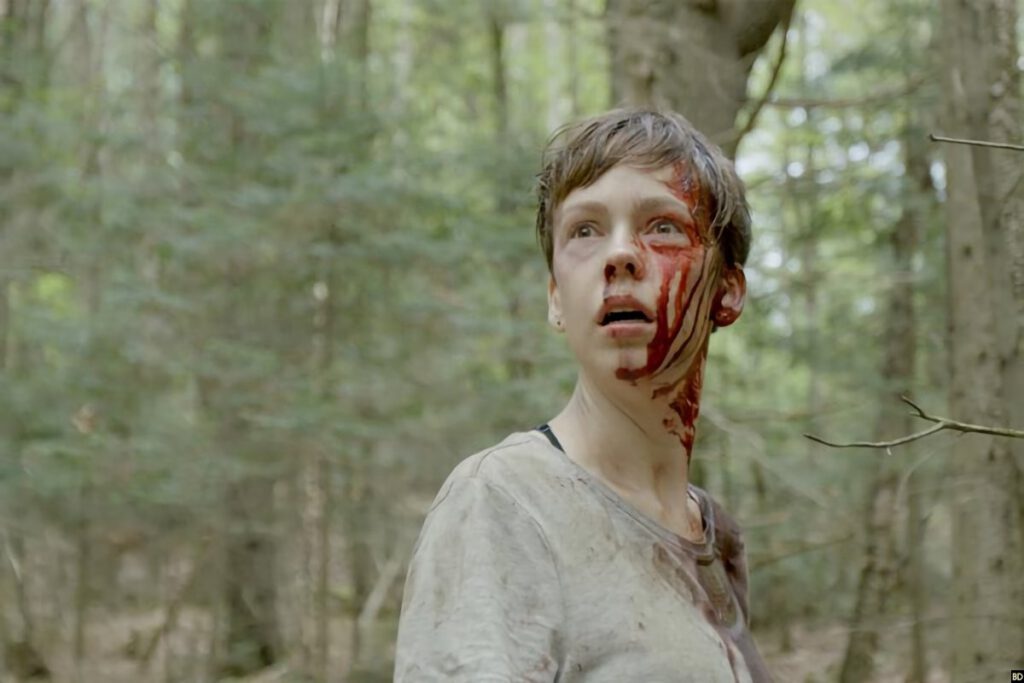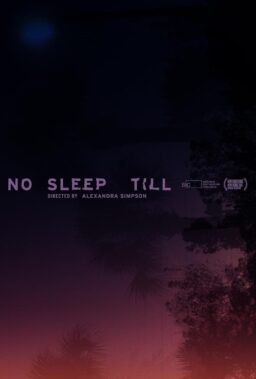Austin’s SXSW is recognized for respecting genre, often premiering what later become hit horror and sci-fi films when they get national release. I’ve seen four of the genre flicks that have already premiered in the first two days of the festival, and, as often happens with midnight programs, they are a mixed bag of quality.
The best of the four is Colin Minihan’s “What Keeps You Alive,” a thriller with a truly clever turn in that it starts feeling like it’s taking the audience in one direction and then takes a sharp right angle into something else entirely. Jackie (Hannah Emily Anderson) and Jules (Brittany Allen) are a happy married couple, spending a few days in an old family cabin once occupied by Jackie’s family. From the moment they get there, something seems off. Jackie feels distant, often staring off into the distance as if she’s remembering something she has yet to share with her wife. Minihan cleverly plays with the idea that even people who we are incredibly close to, like our spouses, can seem a little different when we enter into worlds in which they have been before but we have not. Jackie clearly has a past at this house that she hasn’t fully shared with Jules. And when an old friend named Sarah (Martha MacIsaac) stops by one night, the mystery deepens.
Then, without spoiling anything, Minihan pulls the rug out in a truly great beat. It’s a “turn” in “What Keeps You Alive” that completely redefines the movie, but I wish he had been willing to slow burn it for another 10-15 minutes, as the build-up is actually more interesting than the aftermath. “What Keeps You Alive” then runs out of steam after about the hour mark. Still, this is a solid genre exercise, as most of Minihan’s films have been, and the kind of thing you’re likely to catch late at night on Shudder and wonder why more people didn’t tell you about it before. Just don’t spoil it for anyone.

Producer Jason Blum and his genre-loving friends at Blumhouse brought a pair of films to midnight premieres at SXSW the last two nights and I was daring enough to venture out to both, sadly, walking away disappointed both times. Interestingly, both movies use our current obsession with technology as tools for horror storytelling, imagining worlds in which that tech is our downfall. The better of the two is “Upgrade,” a sort-of low-budget riff on “The Terminator” from Blumhouse regular Leigh Whannell, starring Logan Marshall-Green. Whannell and Blum introduced their film by literally implanting an infrared chip in the hand of a volunteer from the audience, to point out how close we are to the future imagined by this movie, one in which we are a part of the technology. Sadly, the implant, put in by a heavily-tattooed man named “Pineapple,” didn’t work. And neither does the movie really.
Marshall-Green plays a man actually named Grey Trace, a relic in a future defined by technology. He works with his hands and doesn’t use a lot of A.I., which appears to be everywhere, from self-driving cars to smart homes. He is driving in one of those automated cars one night with his wife Asha (Melanie Vallejo) when something goes very wrong. The car is hacked and driven to the wrong side of town where it crashes. Dangerous men pull Grey and Asha from the car, killing her and paralyzing him. Now a quadriplegic, Grey is approached by a tech genius named Eron (Harrison Gilbertson) and told that he can be healed. It involved the implant of a technology called Stem right into Grey’s brainstem. Stem will control Grey’s body. And maybe help him solve his wife’s murder.
There are a number of strong ideas and even a few neat fight scenes in “Upgrade” in search of a more coherent, enjoyable movie. Whannell can’t master the pacing of it, the low budget shows (a rarity for Blum), and the movie can’t settle on a tone. At times, it’s a broad B-movie with veins of dark humor, but then it veers to emotional trauma, and, finally, of course, to a cautionary tale about technological reliance. None of these movies really work and they’re even less effective slammed together at 2 in the morning.

In 2014, “Unfriended” became a surprising critical and commercial hit, which meant a sequel was inevitable. Eschewing the supernatural conceit of the first film, “Unfriended: Dark Web” once again takes place entirely on a computer screen, but this sequel is nowhere near as clever or well-made as the original. It’s an ugly, gross movie about the dark corners of humanity and it uses rape culture, murder, police violence, and cybercrime as thriller devices in a way that just makes you cringe instead of producing actual fear or thrills.
Colin Woodell plays Matias, a young man who finally gave in and took home the laptop that had been sitting in the coffee house lost & found for weeks. He needed it to work on a program to communicate better with his deaf girlfriend Amaya (Rebecca Rittenhouse), with whom he’s been on rocky ground lately. While firing up the laptop for an on-Skype game night with his friends around the world, Matias stumbles upon a folder of hidden files that feature some truly terrifying videos. Suddenly, he’s immersed in a world of murder and horror, and the people who travel that dark web realize he knows too much. And so do his friends. And so they must be eliminated.
“Unfriended: Dark Web” makes too little sense and isn’t enough fun to take the journey to the dark web with these characters. Almost none of them are likable and the way their deaths unfold border on grotesque and exploitative. If you’re going to make a movie about the truly darkest side of human nature than it needs to be fun or stylish to justify the journey. “Dark Web” never is.

I still prefer the Blumhouse films to the seriously frustrating “Wildling” from director Fritz Bohm. The talented Bel Powley is wasted here as Anna, a girl who has been raised in the wild by her creepy father (Brad Dourif), who has sheltered her and injected her with something on a regular basis. Is he protecting her from the world or protecting the world from her? After daddy shoots himself, Anna is plunged into the real world, where a kind cop (Liv Tyler) tries to figure out her story and her future, and Anna, well, changes.
There’s a long history of folklore and fairy tales from which “Wildling” cribs, but it’s just a poorly-made film, lit too dark, cut haphazardly, and tonally inconsistent. I’ve liked Powley in the past, and she certainly gives her all to this role physically, so I kept trying to find my way into the world of “Wildling” only to feel pushed out of it in nearly every scene. It’s a hollow filmmaking exercise hampered by flat, uninteresting storytelling. Let’s hope the genre movies at this year’s SXSW bounce back soon this year.












